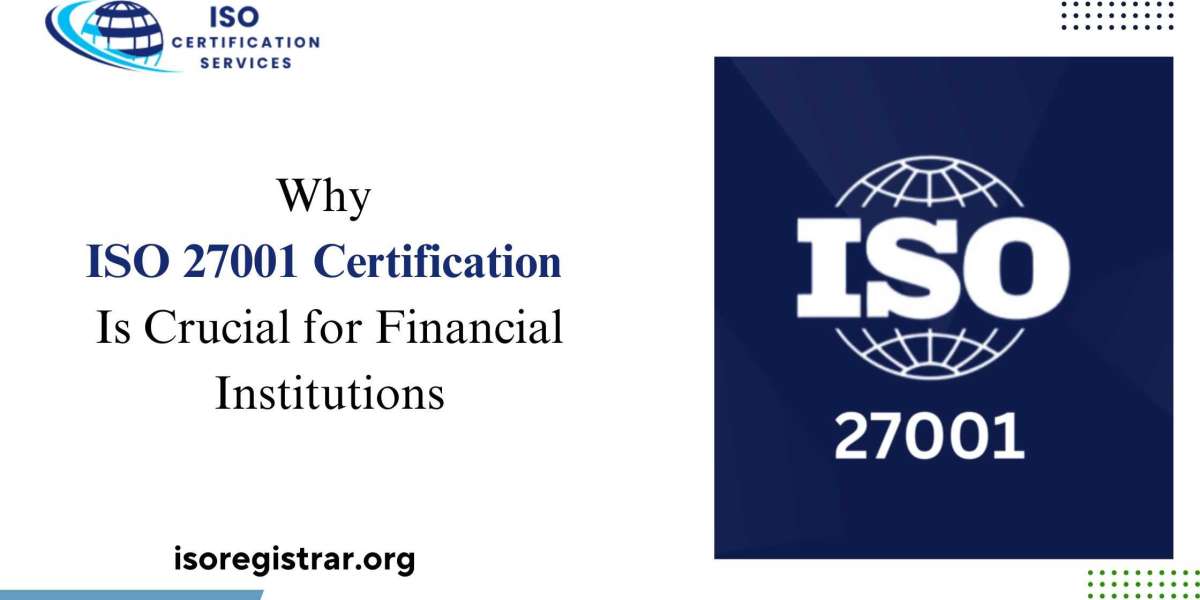In today’s world, where data breaches, cyber threats, and financial fraud are on the rise, ensuring the security of sensitive information is more critical than ever, especially for financial institutions. Whether it's safeguarding customer account details, personal information, or financial transactions, the need for robust data protection has become paramount. ISO 27001 certification is a globally recognized standard for Information Security Management Systems (ISMS), and it plays a crucial role in helping financial institutions protect their data, maintain compliance, and build trust with clients. This explains why ISO 27001 certification is essential for financial institutions and how the certification process works.
What is ISO 27001 Certification?
ISO 27001 is an international standard designed to help organizations establish, implement, maintain, and continuously improve an Information Security Management System (ISMS). The goal is to manage and protect sensitive information through a comprehensive set of security controls and policies. For financial institutions, ISO 27001 is a powerful tool to mitigate risks related to data security and ensure compliance with legal and regulatory requirements.
Why is ISO 27001 Certification Important for Financial Institutions?
Protection Against Cybersecurity Threats
Financial institutions are prime targets for cybercriminals due to the valuable nature of the data they store. Hackers are constantly looking for ways to breach systems to steal financial information, and customer data, or even initiate fraudulent transactions. ISO 27001 helps financial institutions implement security controls to reduce vulnerabilities and protect their data from cyberattacks, such as hacking, phishing, ransomware, and malware.
By adhering to ISO 27001, financial institutions establish a clear strategy for identifying, assessing, and mitigating cybersecurity risks. This includes regular security audits, staff training, and implementing advanced security measures, such as encryption, firewalls, and access controls.
Compliance with Regulatory Requirements
ISO 27001 helps financial institutions comply with these regulations by providing a structured approach to managing sensitive data. The standard outlines best practices for data protection, ensuring that financial institutions meet or exceed the regulatory requirements of their respective countries and sectors.
Building Trust and Confidence with Clients
Trust is the cornerstone of any financial institution. Clients trust financial institutions with their personal and financial data, and any data breach or security incident can significantly damage that trust. ISO 27001 certification demonstrates to clients that the institution has a comprehensive information security management system in place to protect their data.
Minimizing Risks and Preventing Financial Loss
Data breaches and security incidents can lead to significant financial losses, not just in terms of penalties and legal fees but also in lost business opportunities. The costs of dealing with a cyberattack or breach, such as compensating affected clients, repairing reputational damage, and investing in recovery efforts, can be astronomical.
Improved Operational Efficiency
ISO 27001 is not just about security—it also helps improve overall business operations. By streamlining the management of information security through established processes and policies, financial institutions can achieve greater efficiency in their day-to-day operations. The standard helps reduce redundant processes, optimize resource allocation, and implement a more structured approach to managing security tasks.
Competitive Advantage
In a crowded financial services market, ISO 27001 certification can give institutions a competitive edge. More clients today are looking for businesses that can provide assurances regarding the safety of their data. ISO 27001-certified financial institutions can set themselves apart from rivals by demonstrating their dedication to data protection. This certification may lead to new business prospects. Many large organizations, especially those in the public sector or international markets, prefer working with financial institutions that have proven information security management practices in place. ISO 27001 certification can therefore help attract more clients and build long-term business relationships.
Continuous Improvement of Information Security
One of the key elements of ISO 27001 is its focus on continuous improvement. Information security is an ongoing challenge, as new threats and vulnerabilities emerge constantly. ISO 27001 encourages financial institutions to regularly review and improve their information security management system to adapt to changing circumstances.
The ISO 27001 Certification Process for Financial Institutions
Obtaining ISO 27001 certification may seem like a daunting task, but it is a straightforward process that can be broken down into simple steps. Here’s how financial institutions can achieve ISO 27001 certification:
- Visit the Official Website: Start by going to the ISO website.
- Complete and Submit the Application: Fill out the required details in the application form and submit it to begin the process.
- Make the Payment: After submission, you’ll be prompted with payment options. Complete the payment to proceed further.
- Upload Necessary Documents: Once the payment is done, upload important documents like your GST number, Aadhaar card, PAN card, and purchase or sale invoices. There are comprehensive instructions on the webpage.
- Verification Call: An executive will contact you to finalize the certification process and guide you through any remaining steps.
- Receive Your ISO Certificate: Once everything is verified, your ISO certificate will be emailed to you within 3-5 working days.
Note: Apply for iso 45001 certification-occupational management systems
Conclusion
ISO 27001 certification is crucial for financial institutions to safeguard their data, maintain compliance, and build trust with clients. It helps financial organizations mitigate risks, protect against cyber threats, comply with regulatory requirements, and demonstrate their commitment to information security. Achieving ISO 27001 certification may take time and effort, but the long-term benefits—improved security, client confidence, and operational efficiency—are well worth it. For financial institutions looking to stay ahead in a highly competitive and regulated environment, ISO 27001 is not just a certification, but a strategic advantage.








